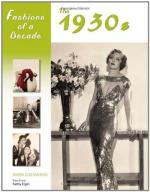|
This section contains 297 words (approx. 1 page at 300 words per page) |

|
The folk schools were derived from nineteenth-century experiments in education pioneered in Denmark. Folk schools broke with the teachercentered classroom and its emphasis on memorization and recitation. Instead, the folk school stressed interpersonal relations. Teachers and students lived together, and their common labor sustained the operation and financing of the school. Offering courses in labor organizing and political reform, folk schools hoped to become a base for more-sweeping social transformation. They were active in local strikes and health and housing reform. They were often integrated and championed civil rights. They were central in the collection of folk music and pioneered methods of oral history. The best known of the folk schools was the Highlander Folk School in Monteagle, Tennessee. Founded in 1932 by a Tennessean named Myles Horton, the school initially relied on support from established educational liberals such as Reinhold Niebuhr and George...
|
This section contains 297 words (approx. 1 page at 300 words per page) |

|




